Table of Contents
Auxiliaries and their Uses in Grammar:
Auxiliaries are the verbs used in forming tenses, moods, voices, etc.
The main auxiliaries are:-
- be (is, am, are, was, were).
- do (do, does, did).
- have (has, have, had).
- to, will, would, shall, should, can, could, may, might, must, ought, used to, dare, and need.
The auxiliaries are also called Special Verbs. They are the only verbs that can make Question Forms by placing them at the beginning of sentences; as,
- Is he at home?
- Are they playing?
- Have you taken your turn?
- Will they serve their country?
Auxiliaries when combined with not (n’t), form Negative sentences; as,
- I am not at fault.
- She did not know where he had gone.
- You can’t do that job.
- They are not to blame.
- He isn’t at home.
- You can’t see the Chief Minister at this time.
Auxiliaries also help to make question tags; as,
- Ram is at home. Isn’t he?
- You were fined. Weren’t you?
- They fell down from the roof of a house. Didn’t they?
- She has done her assignment. Hasn’t she?
- Mohini did not buy dolls. Did she?
- They were not present in the meeting. Were they?
- You shall not be allowed admission. Shall you?
In the above sentences, questions at the end are called question tags.
Note 1: If the statement part of the sentence is affirmative, the question tag should be negative as is clear from sentences 1 to 4.
Note 2: If the statement part of the sentence is negative, the question tag is a simple question without the word ‘not‘ as is clear from sentences 5 to 7 above.
Use of Be:
The auxiliary ‘be’ is used:
(a) To form the continuous tenses; as,
- She is writing.
- They were playing cricket.
- I am receiving guests.
- Was he reading a novel?
(b) To form the Passive Voice; as,
- The table was laid.
- The sum is being solved.
- The assignment has been finished.
- They were blamed for nothing.
- Were they not taken to task?
(c) When followed by an Infinitive ‘be’ expresses a plan or command; as,
- We are to hold a meeting in the evening.
- You are to take care of your diet.
Use of Have:
The auxiliary verb ‘have’ is used in making the Perfect Tense; as,
- We have learnt our lesson.
- They have been doing sums.
Use of Do:
The auxiliary ‘do’ is used:
(a) In making Interrogative and Negative sentences in Present Indefinite and Past Indefinite Tenses; as,
- Do you take exercise every day?
- Does she play with her dolls?
- They do not smoke.
- She does not know how to swim.
- Did you take your turn?
- Did Mohan take tea?
- No, Sonu did not attend the meeting.
- They did not see their officer in a body.
(b) In avoiding repetition of previously spoken or written verb; as,
- Do you know how to write? Yes, I do.
- Did she finish her homework? No, she did not.
(c) In laying emphasis; as,
- Do speak the truth always.
- She was asked to keep quiet, but she did speak.
(d) In making request; as,
- Do join the marriage party of my brother, please.
- Do see my elder brother, please.
Use of Can, Could, May, Might:
(a) ‘Can’ expresses ability or capacity; as,
- I can do this sum.
- Can you compete your brother in any respect?
- He can work eight hours at a stretch.
(b) ‘May’ expresses permission; as,
- May I come in?
- You may do whatever you like.
- She may buy dolls that she likes.
(c) ‘May’ shows the wish as well as prayer; as,
- May you live long, my son!
- May our teachers be benevolent to us!
(d) ‘Could‘ and ‘Might‘ are used to show in the past tense what ‘Can‘ and ‘May‘ do in the present tense; as,
- I could do this sum in no time. (ability)
- He told me that I might go home. (permission)
- I thought he might be true. (possibility)
Use of Shall, Should, Will, Would:
(I) ‘Shall’ with the first person and ‘will’ with the second and third person express simple future; as,
- I shall be of eighteen next week.
- When shall we call on you next?
- He will accompany us to the market.
- You will see that the show is carried on successfully.
(II) ‘Will’ with the first person and ‘Shall’ with the second and third person show the will or determination of the speaker; as,
- I will keep my word whatever may happen.
- We will help the poor to our entire capacity.
- You shall obey your elders.
- She shall help her mother in household work.
(III) ‘Shall’ in the second and third person shows:
(a) A command; as
- You shall not tell a lie. (You are commanded not to tell a lie)
- She shall do it. (Command)
(b) A threat; as,
- You shall be punished if you do not mend your ways.
- The miscreants shall be handed over to the police.
(c) A promise; as,
- You shall have your share.
- You shall get a prize.
(d) A determination; as,
- You shall obey and respect your elders.
- He shall go to school on every working day.
(e) A certainty; as,
- If you walk fast, you shall be out of breath.
- If it rains, she shall not go to school.
Note: In interrogative sentences will is not used at all with the first person.
(IV) ‘Shall’ and ‘Will’ in the second person are also used according to the answers expected; as,
- Shall you accompany me? Yes, I shall.
- Will you accompany me? Yes, I will.
Note: For the use of ‘Should‘ and ‘Would‘ observe the same rules as those for ‘Shall‘ and ‘Will‘.
Use of Must and Ought:
(I) ‘Ought’ is used to express:
(a) Duty or obligation; as,
- We ought to obey our elders.
- You ought to help the needy.
(b) A strong probability; as,
- You ought to have worked hard.
- You ought to have stood first.
(II) ‘Must’ is used to express:
- Determination; as, I must do it just now.
- Duty; as, We must obey our teachers.
- Compulsion; as, Each student must attend the prize distribution function.
- Certainty; as, The patient must have breathed his last by now.
Note: ‘To‘ is used after ought but not after should or must; as,
- You ought to reach the school in time.
- You should reach the school in time.
- You must reach the school in time.
Use of Dare, Need, and Used to:
(a) The Auxiliary ‘dare‘ means ‘be brave enough to‘. Dare does not take ‘s‘ in the third person singular number in Present Indefinite Tense; as,
- He dare not sing before me.
- Dare Rahul speak to his father?
Note 1: ‘Dare‘ is generally used in Negative and Interrogative sentences. Then it does not take ‘to‘ before it as is clear from the two sentences given above.
Note 2: But when dare is conjugated with ‘do‘, it takes an infinitive with ‘to‘; as,
- He does not dare to speak to me.
- Do you dare to indulge in mischief before your father?
Note 3: In affirmative sentences ‘dare‘ takes ‘s‘ and infinitives; as,
- He dares to dance in my presence.
- Payal dares to shout and cry at will.
(b) ‘Need‘ means necessity or obligation. It can be conjugated with or without do. When conjugated without ‘do‘ it does not take ‘s‘ or ‘ed‘ forms and is used with an infinitive without ‘to‘; as,
- He need not worry.
- Shalvi need not go there.
But, when conjugated with ‘do‘, it takes an infinitive with to; as,
- You do not need to worry.
- He does not need to go out.
- They didn’t need to buy a book on grammar other than this.
Note: Sometimes ‘need‘ is used as full verb; as,
- She needed my guidance.
- You need money to buy a pen.
(c) ‘Used to‘ means a continued habit in the past but discontinued in the present; as,
- I used to live with my uncle in my childhood.
- We used to play in the evening.
- They used to climb hills off and on.
- Used you to paint during vacant hours?
Note: Nowadays in place of ‘used to‘, we usually use simple Past Infinite Tense; as,
- I lived with my uncle in my childhood.
- We played in the evening.
- They climbed hills off and on.
- Did you paint during vacant hours?

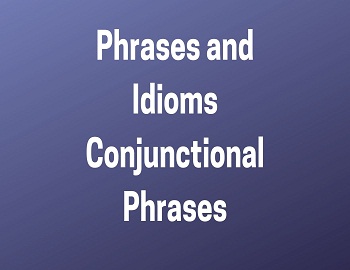
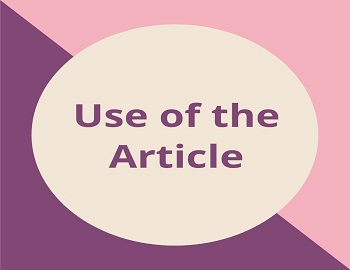
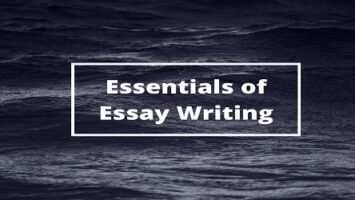
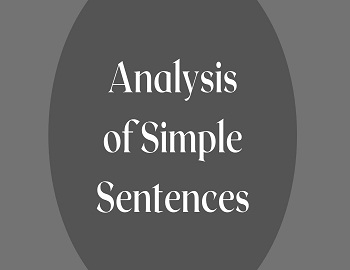
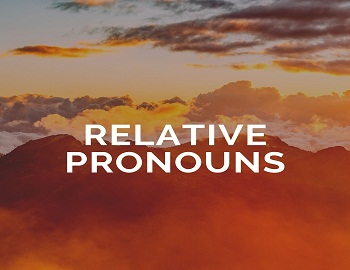
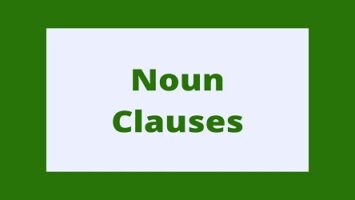


Comments (No)